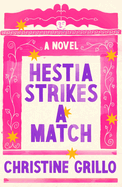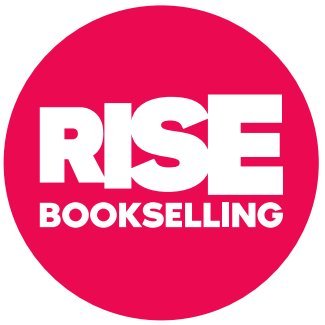 More than 200 booksellers representing some 25 nationalities convened in Prague, Czech Republic last week for the first ever RISE Bookselling Conference. The two-day program, aimed at fostering resilience, innovation and sustainability in the European bookselling sector, ran smoothly and featured author keynotes, panel discussions and plenty of coffee breaks for chatting with other attendees. The second RISE Bookselling Conference will take place next March in Lisbon, Portugal.
More than 200 booksellers representing some 25 nationalities convened in Prague, Czech Republic last week for the first ever RISE Bookselling Conference. The two-day program, aimed at fostering resilience, innovation and sustainability in the European bookselling sector, ran smoothly and featured author keynotes, panel discussions and plenty of coffee breaks for chatting with other attendees. The second RISE Bookselling Conference will take place next March in Lisbon, Portugal.
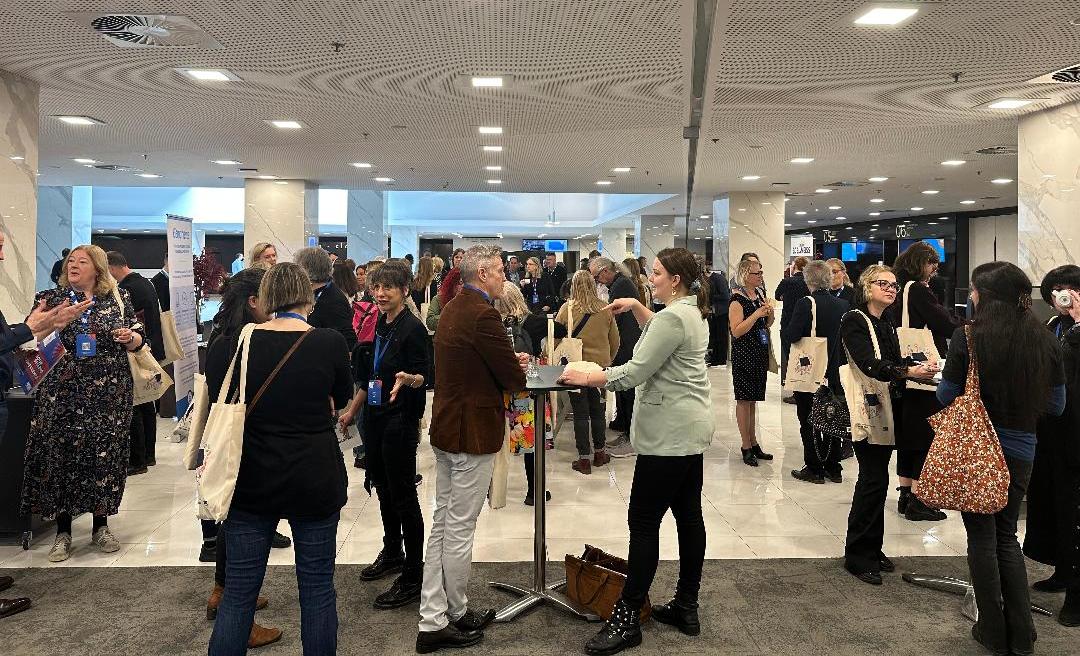 |
| RISE attendees mingle at a reception. |
---
When Berkana Bookshop first opened in Madrid, Spain, roughly 30 years ago, "we didn't have books and we didn't have clients," said store owner Mili Hernandez, during a panel about diverse bookstores.
Hernandez's bookstore was the first LGBT bookstore to open in Spain, at a time when homosexuality was heavily stigmatized and not discussed. The store's future clients "were in the closet" and in many cases "afraid to go to a bookstore," and most of the LGBT titles available in Spanish were translations from English. A few years after opening the bookstore, Hernandez founded a publishing house called Egales, which has gone on to publish some 400 titles. For a long time, it was the "only one" in Spain.
During the same panel, Mairi Oliver, manager of Lighthouse Bookshop in Edinburgh, Scotland, remarked that if Random House and Hachette can have a wine budget for events, they can have an accessibility budget for things like hiring a British Sign Language interpreter. And in response to an audience question about whether to have a dedicated LGBTQ section or to mix those titles into other sections, Oliver suggested thinking about your audience. If the goal is to get straight people to pick up an LGBTQ book, "folding it in makes sense." If you want to reach an LGBTQ audience, there's "no shortcut for having a section."
---
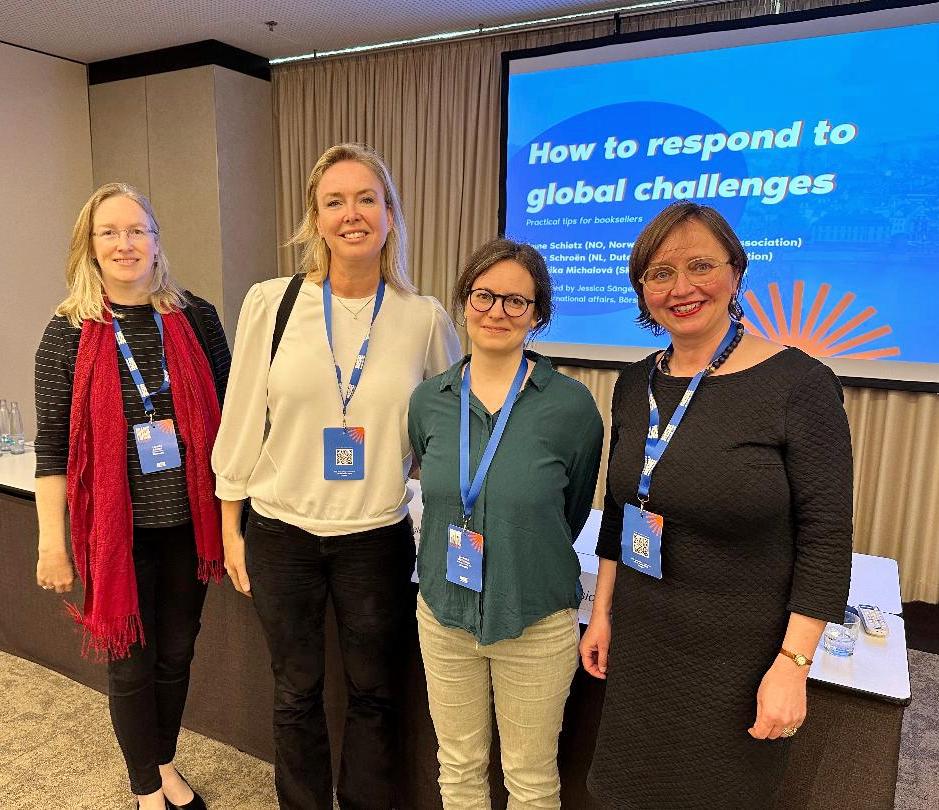 |
| Jessica Saenger, Anne Schiotz, Veronika Michalova, Anne Schroen |
In a breakout session about the role of bookshops in controversial societal debates, Anne Schiotz of the Norwegian Booksellers Association reported that after Russia's invasion of Ukraine last year, there were, for the "first time in many, many years," discussions in Norway about whether to boycott books. Ultimately, the association's answer was no, with Schiotz noting that a boycott of Russian commercial goods is one thing, "but not art."
Veronika Michalova of Artforum Bratislava in Slovakia explained that in her country, publishing houses emerged that published "hoaxes and disinformation and Russian propaganda," and she and her colleagues decided "not to sell these books at all." It was a "hard decision," she noted, as after "40 years of communism," freedom of expression has become a "big value" in Slovakia. The decision was "a bit controversial," Michalova noted, but she doesn't consider it to be censorship but a "keeping of the gateways." She added that with the war going on "right behind the border," and the number of Ukrainian refugees in the country, the situation in Slovakia is a bit different.
Anne Schroen of the Dutch Booksellers Association mentioned an incident in the Netherlands that involved right-wing bloggers labeling a writer as a pedophile for a story he had written years ago about a student having a relationship with a teacher. Though the story was meant to show how easily young people can be manipulated by adults and taken advantage of, Schroen pointed out, the story was taken completely out of context and within 24 hours the writer saw "such immense death threats." The author went into hiding and other authors who supported him also received death threats, and employees at his publishing house "got police protection." It was "appalling," Schroen said, and five years ago she would not have believed that such a thing would happen in the Netherlands.
Jessica Saenger of Germany's Boersenverein (the association of publishers, booksellers and wholesalers) brought up the decisions made around last year's Frankfurt Book Fair. No "state actors" were allowed to attend, and though individual Russian companies would have been allowed, none did.
---
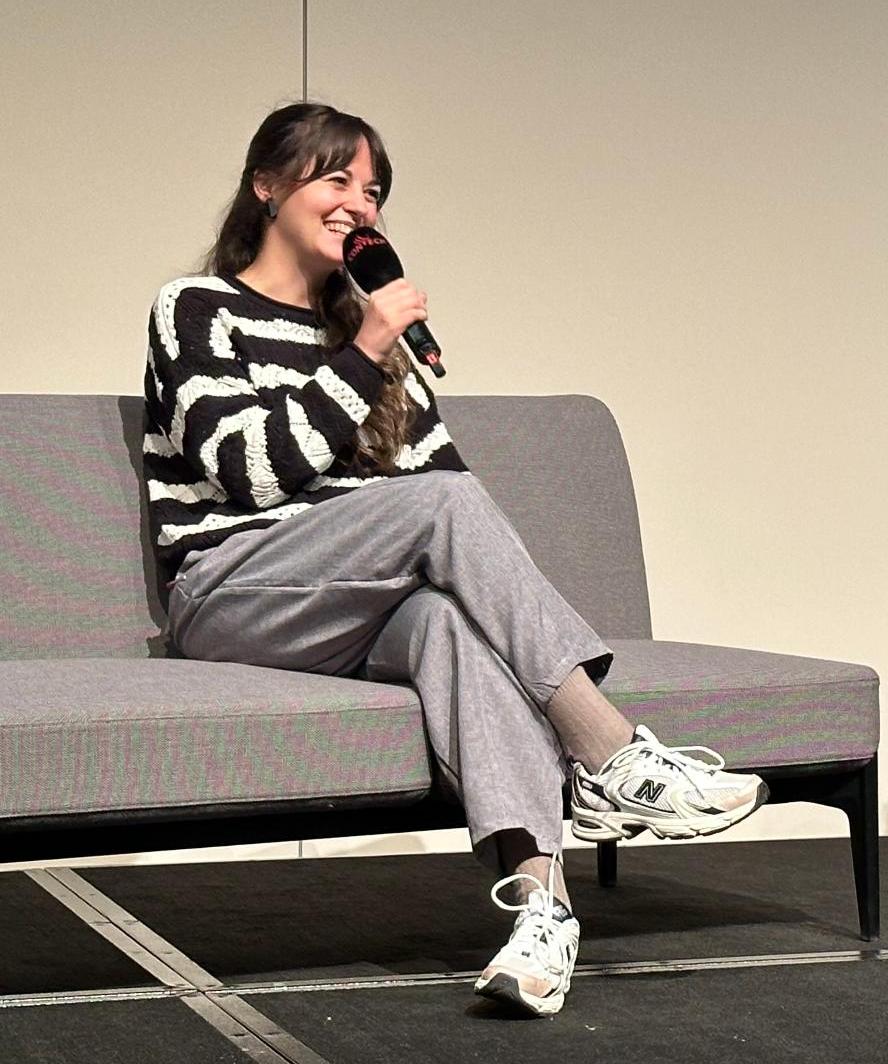 |
| Lana Bastašić |
During one of the conference's keynote talks, author Lana Bastašić and journalist Maarten Dessing discussed Bastašić's debut, Catch the Rabbit, which won the 2020 European Union Prize for Literature and was an Indies Introduce pick in the U.S.
Bastašić, who is Serbian and grew up in Bosnia, was a child during the Yugoslav Wars and drew on that experience in writing Catch the Rabbit. So many books about those wars, she said, are told from the perspective of middle aged men, and she wanted to write about what it meant to "be a girl during and after the war," which was a "whole different part of the story that hasn't been told."
While writing and publishing the novel, she realized that a lot of people "don't consider us Europe," and "a lot of people don't know a genocide happened in 1995 in the heart of Europe." First it angered her, then it saddened her, and she found it "scary" how quickly Europe can bury its old trauma or willingly forget it. Her book "reminds people of this other Europe that sometimes they prefer to forget."
Asked about the reaction to her book in her home country, Bastašić said her hometown is now Orthodox Christian after "ethnic cleansing on a grand scale." That is a fact "still being denied" by the majority of Bosnian Serbs, and Bastašić is among a "small minority" of Serbian people who talk about it. After the publication of her novel, she was called "traitor," "self-hating Serb" and a "bad Serb." She has also been called a witch, saying she's "proud of that one." In Sarajevo, she noted, she has readers. In her hometown she does not.
Bastašić, who translated her novel into English, remarked that when she travels she frequently visits bookstores, and often what she sees is a preponderance of English-language books and American writers. While she does "adore" some of those writers, translated fiction can often be "pushed aside," and she asked booksellers to consider giving prominent display space to a more diverse range of authors.
---
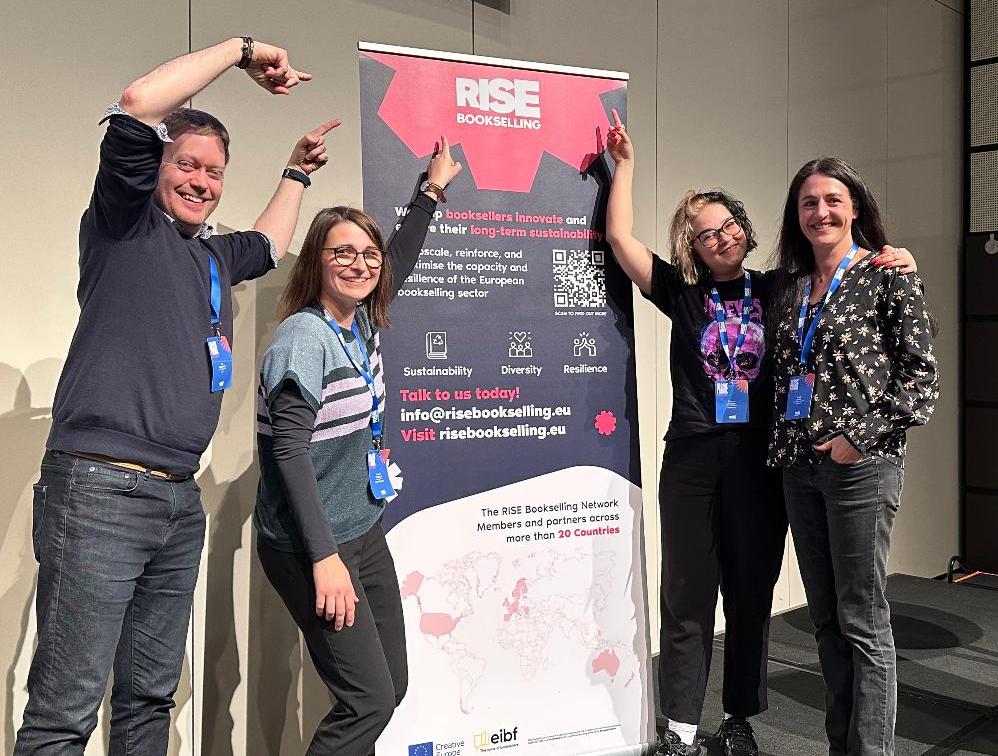 |
|
Nic Bottomley, Tereza Parizkova, Raluca Selejan, Aude Farès
|
Booksellers Tereza Parizkova, co-owner of the children's bookstore Zlata Velryba in Olomouc, Czech Republic; Nic Bottomley, co-owner of Mr. B's Emporium of Reading Delights in Bath, England; and Aude Farès, owner of Le Chameau Sauvage in Toulouse, France, appeared on a panel to talk about innovative ideas they've implemented at their bookstores. Raluca Selejan of La Două Bufniţe Bookshop in Timisoara, Romania, moderated the talk.
Parizkova discussed a book club she started in her store that is meant for adults but focuses on children's books. She explained that she started the club because she feels it's "important for adults to read books intended for children." The club filled up fairly quickly, and it turned out that every adult who signed up for the club was a teacher. During the first meeting they talked about which schools they worked at and the age groups they taught. When they returned for the second meeting, Parizkova learned that they had all brought the book into their respective classes and they shared with the club how that went.
Bottomley described his store's Reading Spa program, which the team came up with about two years after the store opened. Customers book a Reading Spa appointment either for themselves or as a gift for someone else, and the recipient then goes to the bookstore for a one-on-one talk with a bookseller. Over tea and cake they discuss books, and after chatting, the bookseller gathers some 15-20 books and presents them to the customer. The appointments come with a voucher that will cover several books, as well as a voucher for a future visit to the store, and Bottomley noted that most customers leave the shop with "more books than they bargained for." The service has proven so popular that they have a waiting list "in excess of seven months."
Farès talked about the variety of unconventional nonbook events she hosts at her bookstore. Her store has held ukulele lessons, comic strip workshops and lectures on Chilean politics, and Farès said she hosts these sorts of events because she knows there is a portion of the community that might feel intimidated to enter a bookshop or might not think it is a space for them. The events help draw in those community members, and often they "come back to us after that." --Alex Mutter
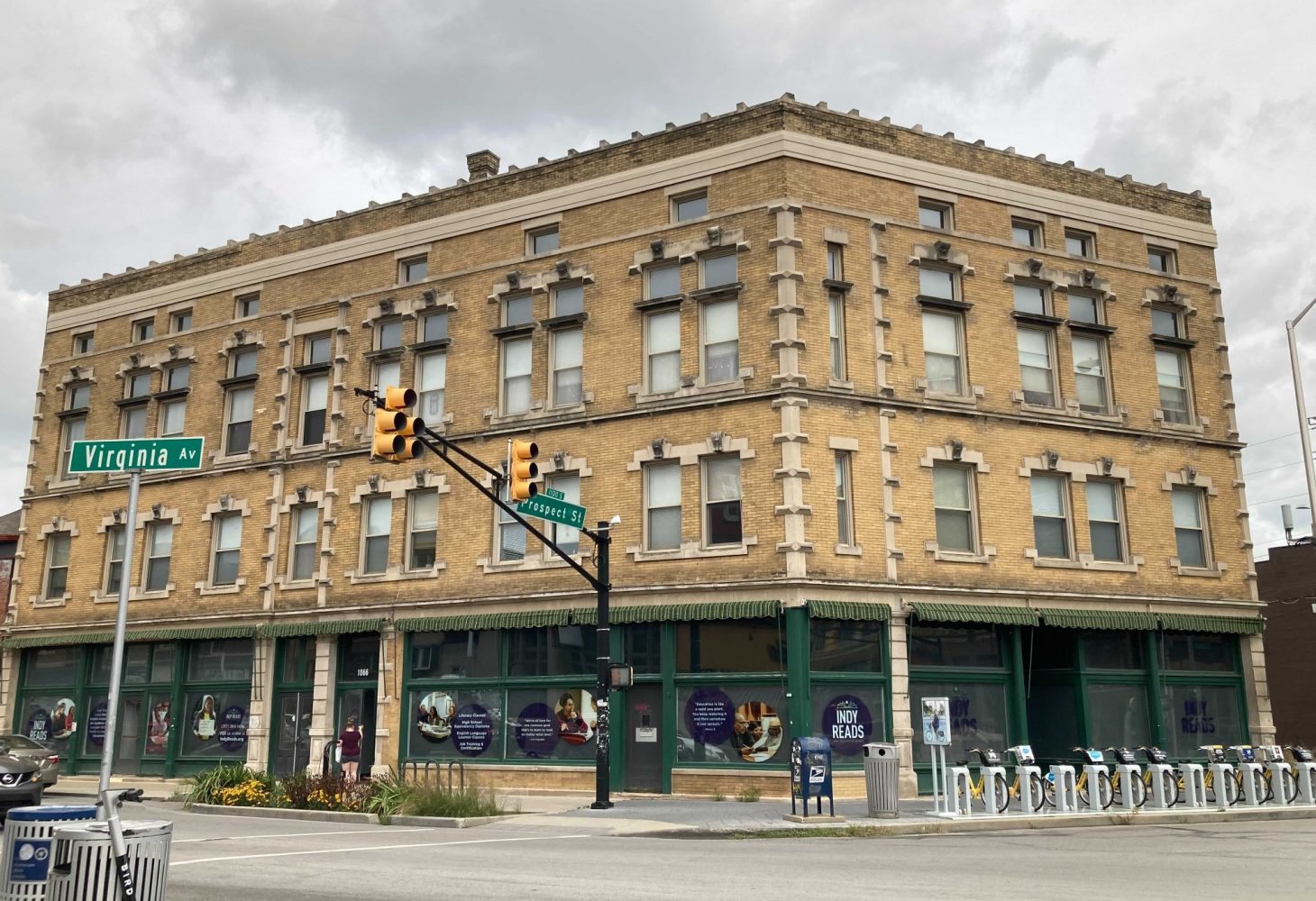 Indy Reads, a literary nonprofit and bookstore in downtown Indianapolis, Ind., closed temporarily after receiving a bomb threat on Sunday over its monthly drag story hours.
Indy Reads, a literary nonprofit and bookstore in downtown Indianapolis, Ind., closed temporarily after receiving a bomb threat on Sunday over its monthly drag story hours.






 More than 200 booksellers representing some 25 nationalities convened in Prague, Czech Republic last week for the first ever
More than 200 booksellers representing some 25 nationalities convened in Prague, Czech Republic last week for the first ever 



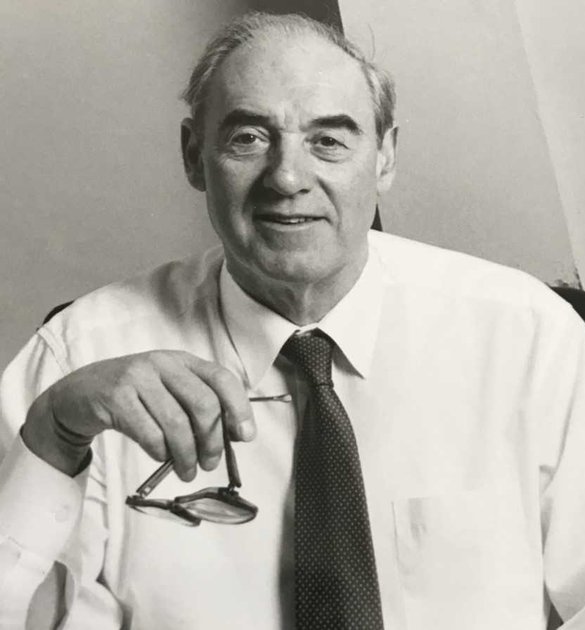


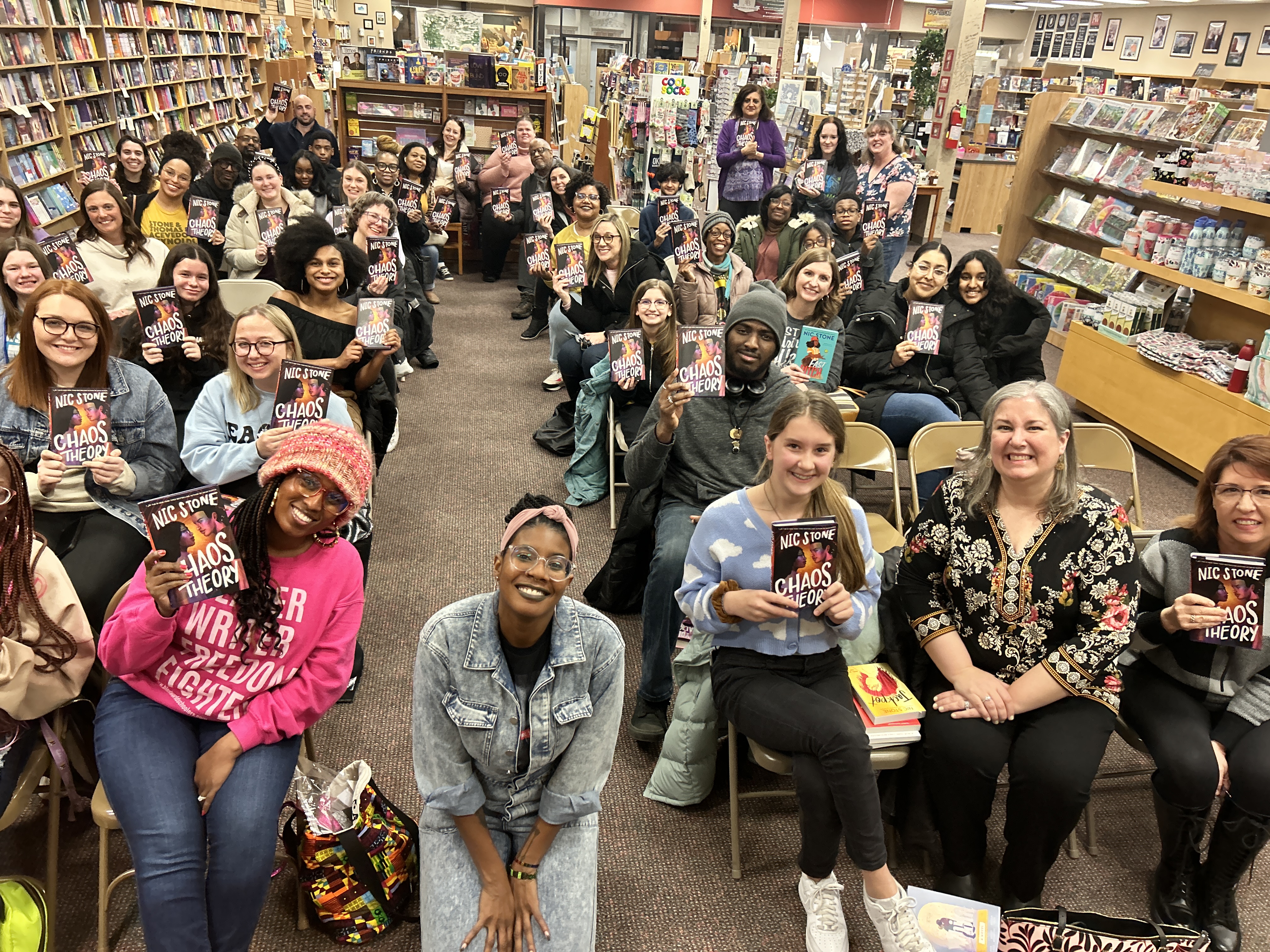 Author Nic Stone poses with the crowd at
Author Nic Stone poses with the crowd at 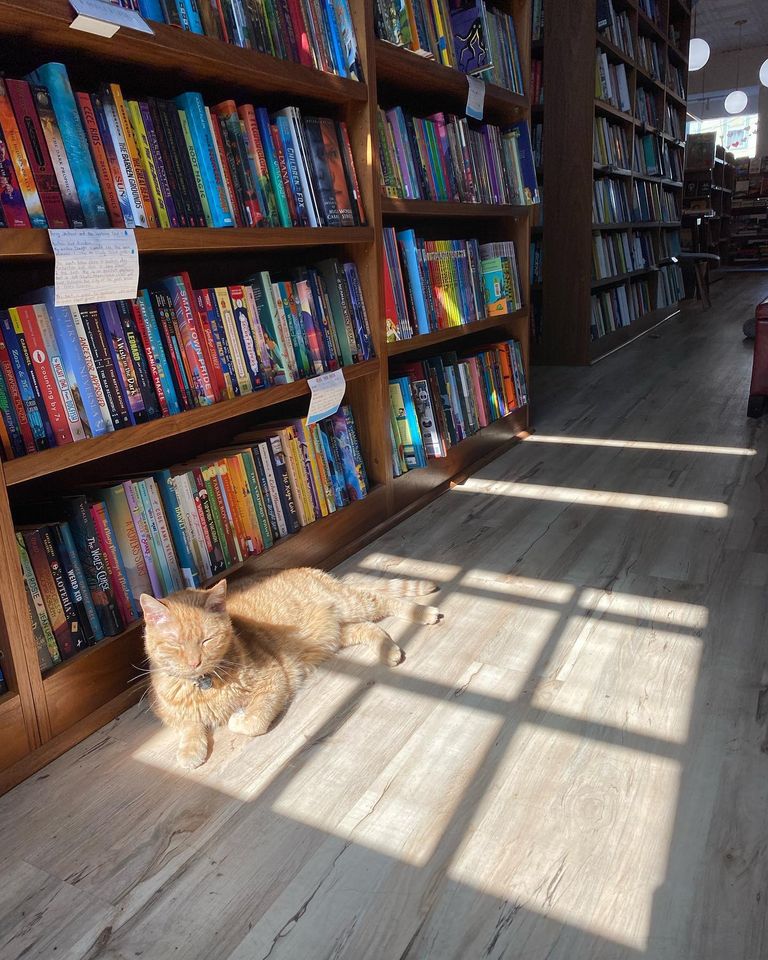 "
"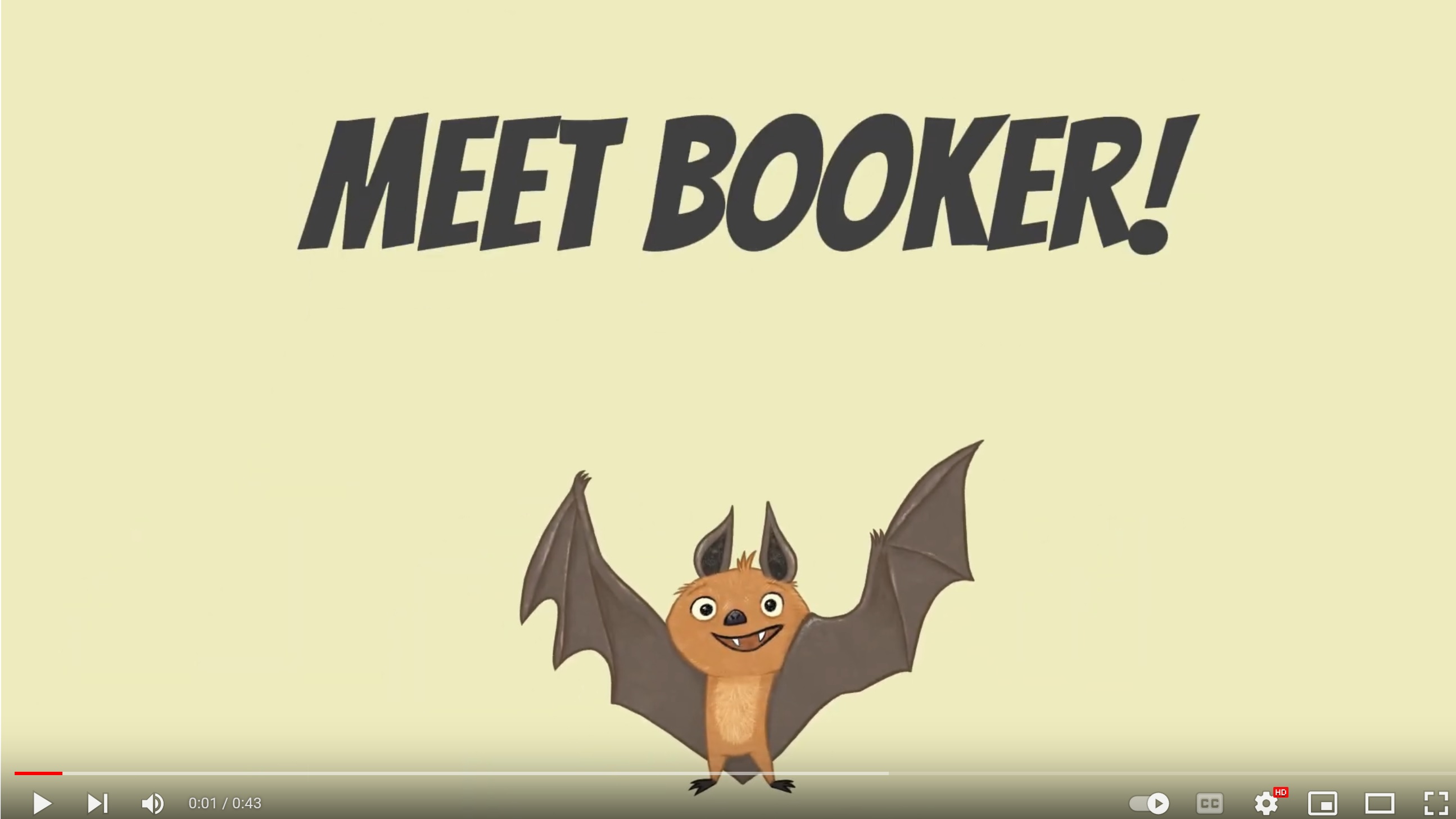 Booker the Library Bat 1: The New Guard
Booker the Library Bat 1: The New Guard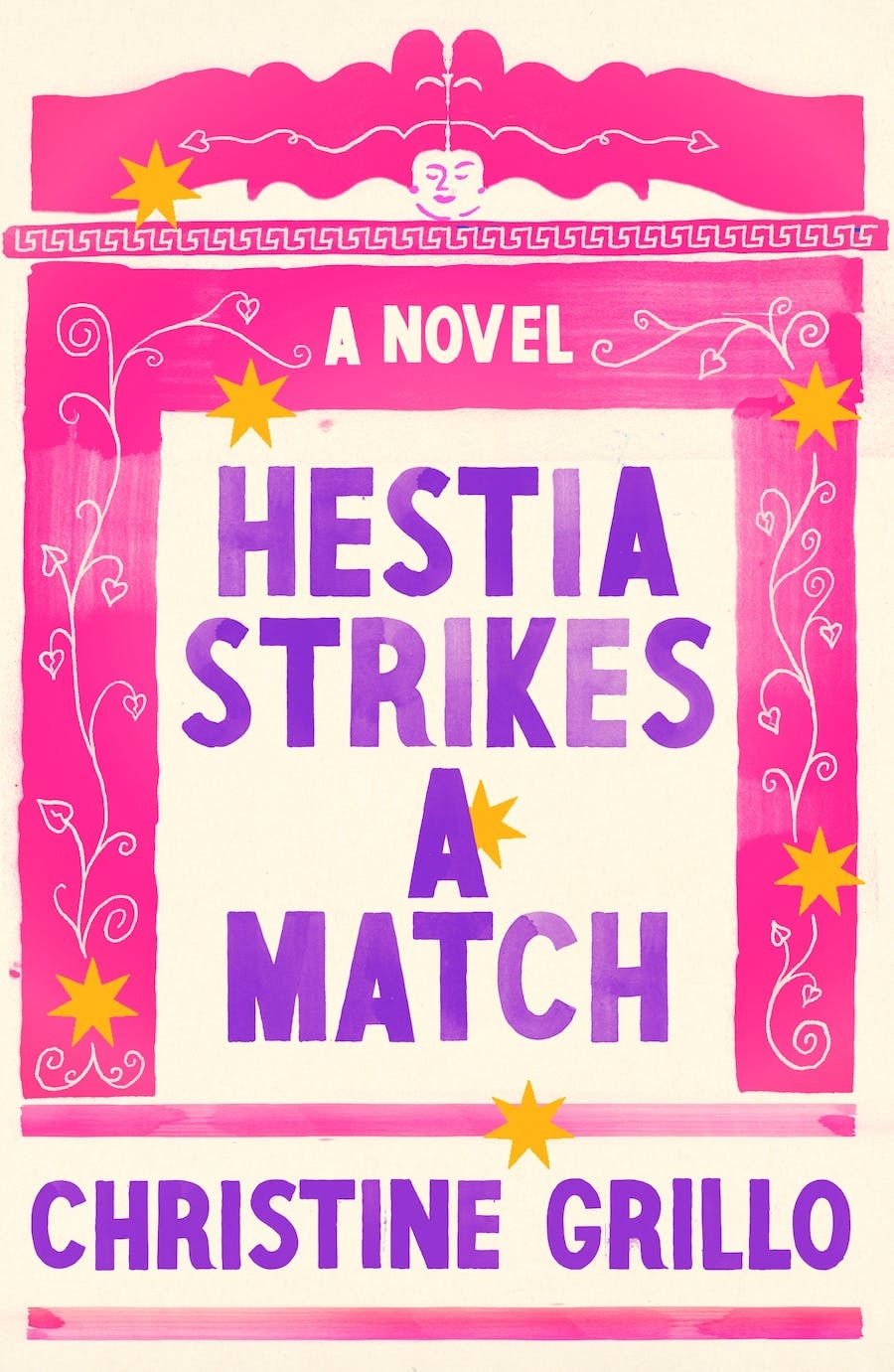 Christine Grillo's debut novel, Hestia Strikes a Match, is sure to strike a chord with its pinpoint take on political polarization, modern love and generational divides, all delivered in a quick-witted and big-hearted narrative that will captivate readers with its wry vulnerability.
Christine Grillo's debut novel, Hestia Strikes a Match, is sure to strike a chord with its pinpoint take on political polarization, modern love and generational divides, all delivered in a quick-witted and big-hearted narrative that will captivate readers with its wry vulnerability.